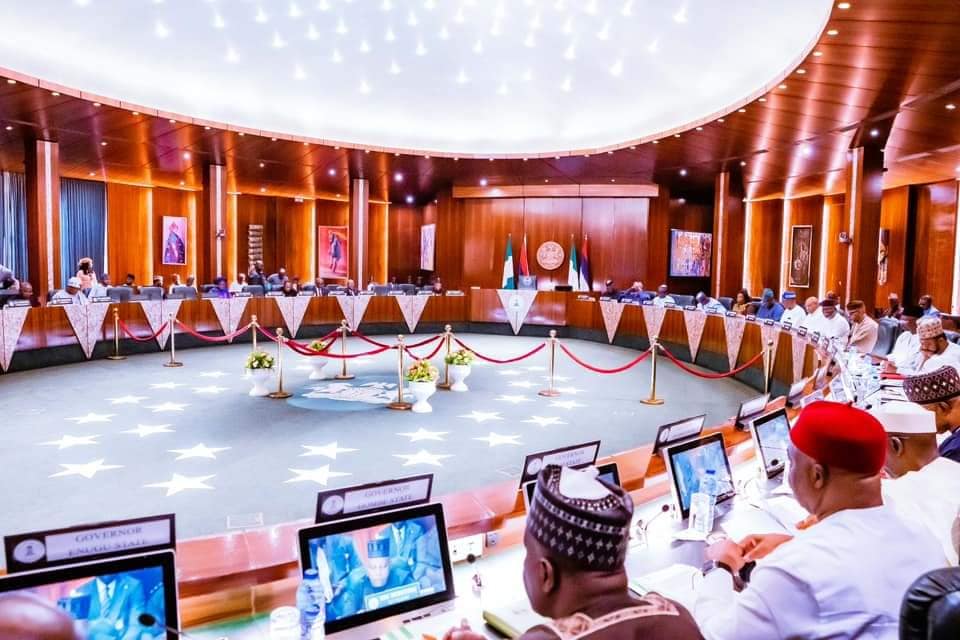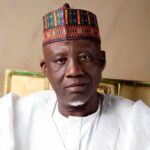The National Economic Council (NEC) said yesterday that subsidy palliative would be disbursed using state-generated social registers.
Governor Dapo Abiodun of Ogun State announced this on Thursday during the NEC meeting presided over by Vice President Kashim Shettima at the Council Chambers of the Presidential Villa, Abuja.
He was flanked by his Anambra and Bauchi counterparts Charles Soludo and Bala Mohammed, respectively, as well as the Acting Governor of the Central Bank of Nigeria (CBN), Folashodun Shonubi.
The meeting had in attendance governors of the 36 states of the Federation, the Director General of the Nigerian Governors’ Forum, as well as stakeholders from the World Bank and other agencies of government.
- Reps to probe aviation fuel contamination, non-adherence to standards
- New okro disease breaks out, many farms infected
Nigerians had earlier roundly rejected the proposed sharing of N8,000 to select citizens saying the initiative would only pave the way for government officials to steal the money.
This forced the Tinubu administration to announce that it will review the plan.
Addressing journalists yesterday, Abiodun said that the economic council considered using cash transfers based on state social registers and the peculiarities of each state.
He said the fuel price hike was not the doing of the federal government but a consequence of market forces since petrol had been deregulated.
He said after extensive deliberations on the proposals of the NEC Ad hoc Committee on cushioning the effect of petrol subsidy removal led by Anambra State Governor, Prof. Charles Soludo, the meeting also resolved to support enhanced engagements between state governors and the leadership of the labour unions across the states, and proposed the provision of the cost-of-living allowances to be paid to civil servants in both the state and federal civil services.
He said the payment to be made for six months in the first instance would be devoid of tax.
Abiodun said the meeting also agreed on the need to fund Micro, Small and Medium Enterprises (MSMEs) and begin immediate implementation of energy transition plans, especially the conversion of buses and taxis from fuel to CNG.
He said the long-term plan was the use of electric vehicles, adding that it would take six to eight months to establish such factories in each geo-political zone.
The governor spoke about an ambitious plan to provide 10,000 buses being powered by electricity.
Speaking after deliberations on the presentation, Vice President Shettima read the resolutions of the Council noting, “We will also pursue vigorously, the mass deployment of CNG-powered vehicles and establishment of autogas conversion plants/kits in all States in the short-term and deployment of electric buses and cars with charging infrastructure across the country.”
Governor Mohammed said NEC also backed the planned distribution of grains and fertilizer to Nigerians by the Federal Government through the Central Bank of Nigeria to mitigate the impact of the removal of petrol subsidy on citizens.
The distribution of food items, grains and fertilisers including chemicals and other implements to guarantee food security expected to start on July 24 are to be done by state governments at the rate acquired from National Emergency Management Agency (NEMA).
He put the amount of grains and fertilisers each to be distributed at about 252, 000 metric tonnes.
While speaking on the cash transfer, Governor Soludo said it was not possible to digitally transfer money to the poorest of the poor the majority of whom are unbankable as beneficiaries of the supposedly transferred cash could not be identified in the villages.
He said NEC resolved that the states should come up with their own registers using formal and informal means to develop it, assuring that all beneficiaries at the subnational level could easily be accessed that way.
“We need to face the problem of the fact that we don’t have a credible register,” he said.
Soludo said the current National Social Register failed the integrity test as some members described it during the meeting as “bogus” and “fathom”.
“I think at the council today, there was almost near unanimity among members. That there’s a big question mark about the integrity of the so called National Social Register. We have questions about how those names in the register were brought about and I’m sure one question I hear asked is where it is for the most vulnerable group, and so on and so forth.”
“The poorest 25 per cent of Nigerians are largely if not totally unbanked, and they don’t have access to your telephone. It is of the poorest of the poor of our society.”
Soludo said the meeting also encouraged government officials to cut back on the cost of governance in their various spheres.

 Join Daily Trust WhatsApp Community For Quick Access To News and Happenings Around You.
Join Daily Trust WhatsApp Community For Quick Access To News and Happenings Around You.


